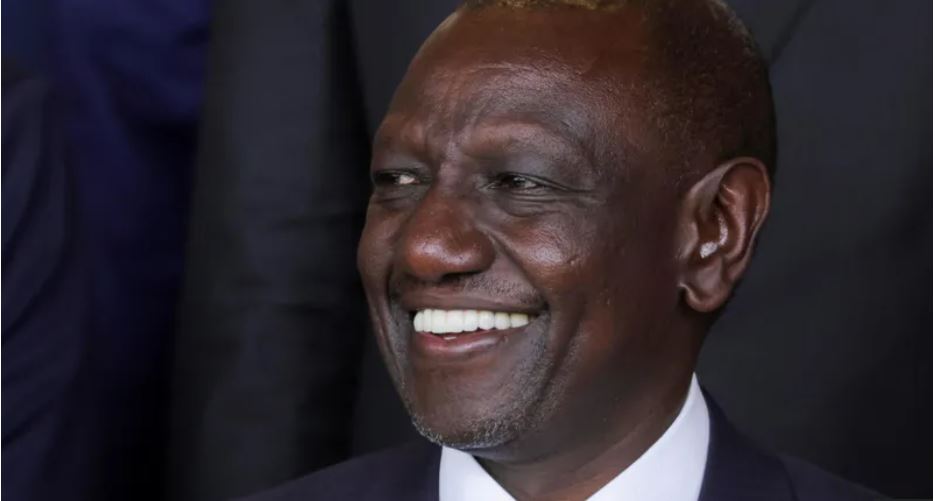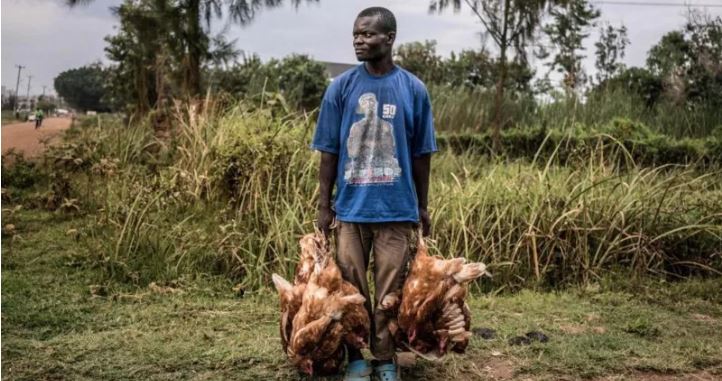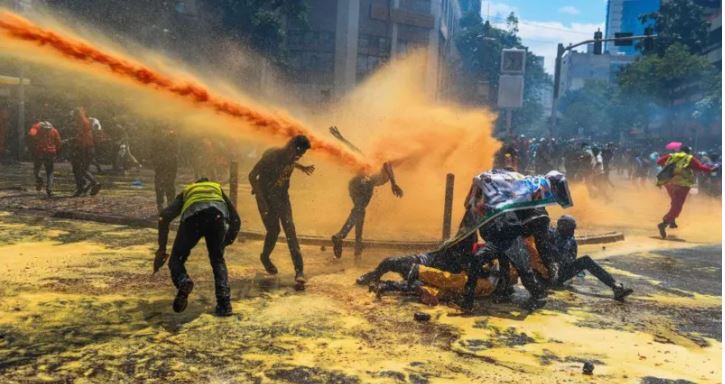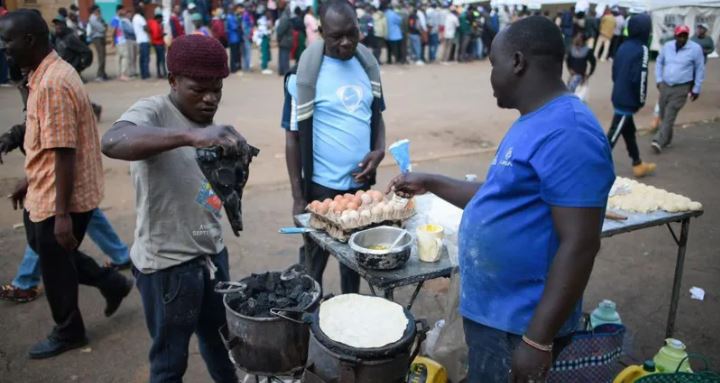
Kenya's President William Ruto is a man of many nicknames.
Deputy Jesus, El Chapo, Hustler and Chicken Seller are just some that he has acquired in recent years.
As is often the case when people are given alternative monikers, some are affectionate but some are intended to mock and reflect a profound anger.
A history of the president's aliases offer a window into how the perception of him has changed.
Ruto has acknowledged the rechristening trend, joking recently that Kenyans are "finishing" him with the numerous labels.
"You have given me so many names. I had the name William Kipchirchir Samoei Ruto. You added Survivor… Zakayo... now you are at Kasongo (the title of a Congolese song about abandonment and heartbreak). Will you stop at ten, or should I prepare for more?" he recently asked.
The crowd, at a rally in the capital, Nairobi, responded that they had yet more.
Before he was elected president in 2022, Ruto attracted handles that bolstered his reputation as a man of the people.
Hustler - Kenyan parlance for someone eking out a living against the odds - helped portray him as someone who would prioritise the needs of the struggling folk.
Chicken Seller, referring to his childhood when he hawked poultry on the roadside, resonated with many who saw his life as an epitome of their own.
"These were very positive [names]. They sold him to the public in terms of votes," political analyst Prof Herman Manyora told the BBC arguing that they helped catapult him into the top job.
"Names really stick with Ruto," he added.
Prof Manyora recalls the label Arap Mashamba – which translates as "son of farms" – coined just under a decade ago and relates to Ruto's ownership of vast tracts of land across the country. Concerns have been raised about how some of these have been acquired.
Ruto's government ntroduced a raft of unpopular taxes and many Kenyans began to say that he had betrayed the "hustlers".
The pain of paying more taxes, and a perception that the extra money will be wasted, is often the focus many conversations.
The chant "Ruto must go" became a rallying call for the demonstrators and now Must Go has become another way to refer to the leader.
The first part refers to the president's love for the Kaunda suit - a safari jacket with matching trousers – and Uongoman, which incorporates the Swahili word uongo, meaning "lies".
Government spokesman Isaac Mwaura said the manifold nicknames "don't raise concerns" in the office of the president but simply "capture how people view a person".
Mwaura also argued that in spite of the Zakayo nickname, the government has had to raise taxes to pay for new projects, reduce the budget deficit and fix the economy.
Some cartoons and AI-generated images, including showing the president in a casket, have been described as "reckless" and "distasteful".
Lachon Kiplimo, a 23-year-old university student, said that while he supported the president, some of the promises he has made are sometimes "unrealistic", which fuels the nicknames.
Mr Kiplimo however reckons that the way the president brushes off the monikers, and in fact seems to embrace them, shows how strong he is.
She feels that the mockery is a way of letting Ruto know how the youth are feeling.
It is true that previous heads of state had had nicknames but they have not been so numerous.
His predecessor, Mwai Kibaki, was known as General Kiguoya (a general who is afraid) and Fence Sitter.
Perhaps the age of social media, with its insatiable appetite for new content to keep people amused has increased the trend towards name calling.






















